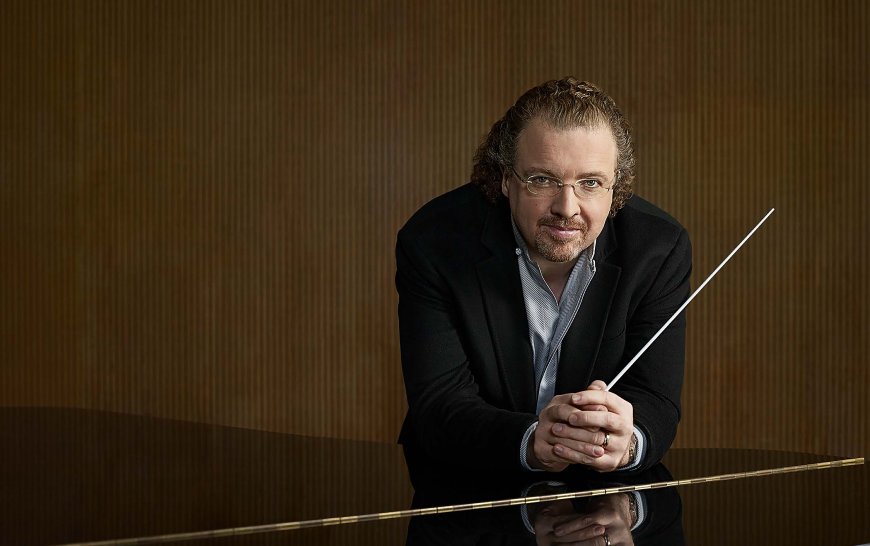
Business cards may be anachronistic in the digital era, but Stéphane Denève still hands them out freely. In fact, the internationally acclaimed French conductor has a couple versions at the ready. As music director of the St. Louis Symphony Orchestra and artistic director of Miami’s New World Symphony, he has cards for each. Flip them over, and the bearer will discover a pair of tickets gratis.
“I feel like Willy Wonka!” Denève said with a laugh as he pulled out a boxful of cards during a recent Zoom interview with SF Classical Voice. “It’s a small tool. I want to make people aware of what classical music can give them.”
Denève recounted how that same morning, he had offered a card to the man he was renting a car from. “I mentioned Powell Hall [in St. Louis]. He told me, ‘I went to Powell Hall once when I was young on a school trip. It was so amazing.’ The guy really remembered this experience from his childhood. I said, ‘Let me invite you. Please come.’”
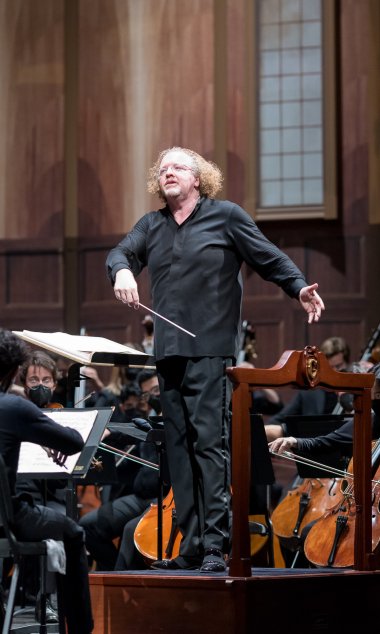
Deneve’s combination of bighearted inclusion and sharp, uncompromising artistry is slated to be on double display in California this month. He conducts at Festival Napa Valley in St. Helena on July 20, a symphonic concert featuring music of Hector Berlioz, Felix Mendelssohn, and Sergei Prokofiev. He then returns to the Music Academy of the West in Santa Barbara, where he leads a program of French music, including Maurice Ravel’s Boléro, on Aug. 2.
(For those interested in long-range planning, Denève is slated to be at the San Francisco Symphony again in June 2026.)
While sitting in his office in St. Louis, with a giant photograph of central Paris behind him, Denève discussed how he creates concert programs, why he appreciates working with young musicians, and the role of artists in turbulent times. The interview has been edited for clarity and concision.
When SFCV last spoke to you a decade ago, you said, “I love making programs. It’s like creating a bouquet of flowers, trying to find which goes with the other.” So how did you create the French bouquet you are bringing to the Music Academy?
When you make a bouquet, you have to start with one type of flower. I knew they wanted me to work with [soprano] Christine Goerke, someone I have worked with for more than 25 years now. I was delighted. We recently did [Benjamin] Britten’s War Requiem together. She had a list of three or four things she wanted to sing. I jumped on [Berlioz’s] La Mort de Cléopâtre. It’s a piece I did a long time ago, and I thought it’s time to do it again.
That gave us a Mediterranean setting, so I thought I would continue with a Greek theme, Albert Roussel’s Bacchus et Ariane, and something to do with the sea, Ravel’s Une barque sur l’océan. The orchestral version of that [latter] piece has never had much success, but it has had something of a revival recently. I recorded it myself in Stuttgart and thought it had some really interesting challenges for the orchestra. So I will [be giving] the young talents of the Music Academy of the West a lot to do. I’m happy to offer them pieces they don’t know. I want them to fall in love with these works.
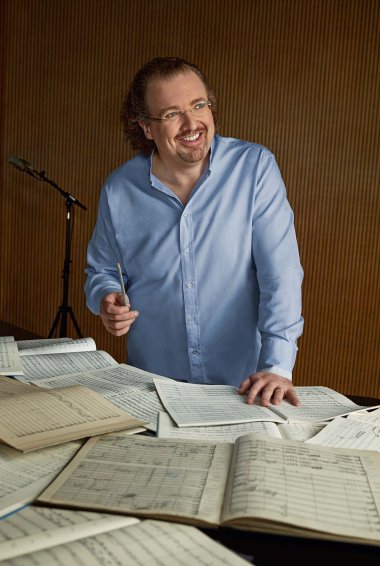
As artistic director of the New World Symphony for the past two years, you’ve been accustomed to working with brilliant young musicians who are just beginning their careers. Are rehearsals different with an ensemble that is playing a piece for the first time as opposed to an ensemble that has played a given work on many occasions?
Yes and no. I follow the same goal, the same very refined coloring and phrasing. What is different is [younger musicians] do not yet have traditions.
Let’s face it: Traditions are often bad habits. [With younger musicians] you can build things naturally without preconceived ideas. I love their open minds. We can experiment and find the style together, some new sound or some imaginative way of playing — I love that. They give me so much back.
That’s why I love the New World Symphony and why this is my fourth time at the Music Academy. I love the energy. I love the excitement coming from these young, talented musicians. Music has made me a happy person, and I love sharing that joy. I try to explain to them that the idea of following a career path is limiting. They have to search for what music means to them, and what it means to them to offer music to the world.
I was recently speaking with John Williams, who is 93. We were discussing Haydn and how amazing his symphonies are. He said, “You know, Stéphane, there is enough music for a full life, but there is not enough life for music.”
Conductors Georg Solti and Carlo Maria Giulini were both mentors to you early on. What were the most important things you learned from those giants of the podium?
I was very lucky to work with Giulini three times. His conducting style was amazingly inviting. I remember performing the opening of the Verdi Requiem while Giulini watched me. There was not a millimeter of doubt on his face that I would give him the best. I remember wondering how he gives people the feeling that they will not fail. That was very inspiring to me.
Solti was inspiring in many ways. He had such a passion for music. Some of my gestures, my physical vocabulary, come from him.
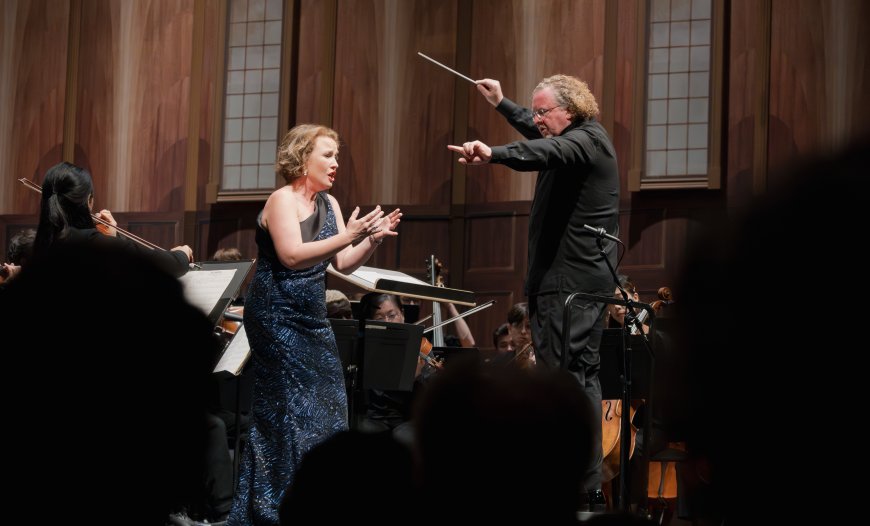
How do you work it out when you and a soloist — a singer or instrumentalist — disagree on how a particular passage should be played?
There are plenty of little tricks to try to kindly express your wishes in a way that hopefully does not offend. The goal is to serve not our ego but the music. I argue, ‘The composer seems to intend it should be that way,’ and not, ‘I like it that way.’ My weapon is to show that the score expresses something that cannot be ignored. Sometimes I can be convinced [to change my mind]. It is very rare that we don’t at least find a compromise. People respect me or want to be engaged again, I don’t know which — maybe both!
Turning to politics, there’s a lot of ugliness out there today, including a lot of immigrant-bashing in the U.S. and elsewhere. What in your view is the role of artists in such a time?
I really believe it is critical for us to be a platform for expressing the positive values carried by music. The orchestra is a wonderful model for society. People from different backgrounds, different races, different countries, listening to each other, turning to each other, and creating beauty together. They literally create harmony. That’s a very powerful tool to express hope for the world.
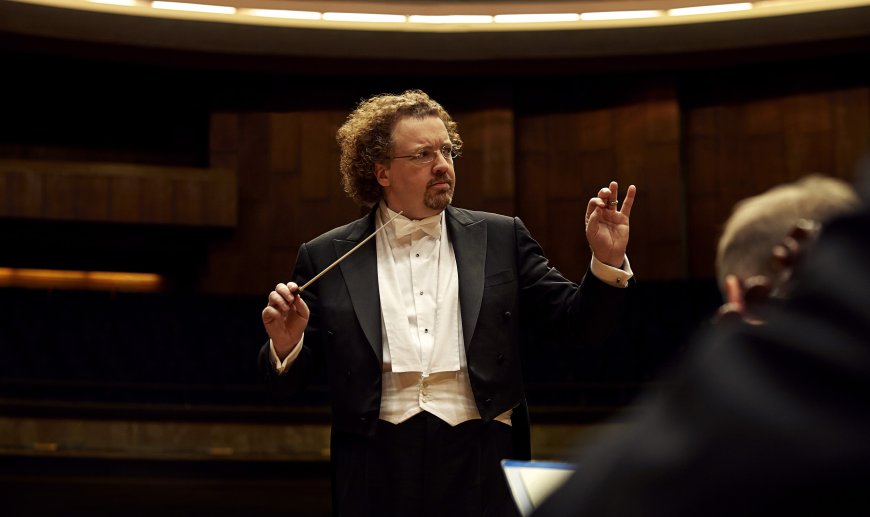
I’m suffering a lot because of the model of society, the model of human nature, that we see in the world today, especially among political leaders. The idea that the world is a jungle where the stronger and most violent win is extremely concerning. Civilization is about contradicting that idea.
I know some people are cynical. They argue music cannot change the world. But I don’t want to make [musicians] less important than we could be. I know the joy that [performers] can bring to a concert. You can feel it, the humanity, at the end. It can lead people to break barriers, to speak to others about how moved they were. It’s about creating something together that transforms us. I think this is very precious.
You obviously feel deeply about this.
I believe in catharsis. Thanks to music, I believe in people, [in] realizing who they are and what they want. There are fascist views of music, but I don’t believe there is any fascist music. Music is vibrations from one heart to another. That’s the most human way to connect.




